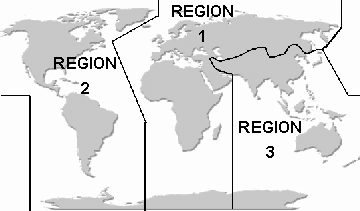Question 4 on this
section
2d Maritime
mobile operation.
2(1)(e) Use whilst Maritime Mobile and
meaning of Maritime Mobile as shown in
clauses 17(1)(v), (ss)
2(1)(e)
where this Licence is a
Full Licence only, from a Maritime Mobile location
17(1)(v)
"Maritime Mobile" means the Radio
Equipment is located on any Vessel at Sea;,
(ss)
"Vessel at
Sea" means a Vessel operating on the
seaward side of the low-water
line along the coastline as marked on
large scale charts officially recognised
by the relevant coastal state;

With the Advanced licence you will be able to
operate Maritime mobile and can use the suffix /MM when on a
vessel at sea - that means in tidal waters. Note that on inland
waters you are /M (mobile)
The other locations remain as for the
Foundation and the Intermediate licence.
Installation
use and changes.
9(4) Before
operating the Radio Equipment on a Vessel, the Licensee
shall install, use or make changes to the Radio
Equipment only with the written permission of the Vessel's
Master.
From the interpretation section the following
is to be noted:-
"Vessel" means any other floating structure
which is capable of being manned
If you are to operate amateur radio on board
any sea going ship big or small, the ship's master must know of
the existence of your amateur installation (including
hand-helds) and be able to require silence.
To avoid any doubt permission to operate an
amateur radio transmitter, or to change an installation must
be IN WRITING from the vessel's master.
Radio Silence
9(5) Whilst operating the
Radio Equipment on a Vessel, the Licensee
shall observe radio silence on the advice of
the Vessel's Master.
You must also understand that there are
specific times when Radio Silence must be observed. This is to
allow for distress calls , or distress beacons to be more easily
heard on what ever frequency they are being made.
Know the 3
ITU regions and that the frequencies are
given in the ITU Radio Regulations.
9(6) When
the Licensee operates the Radio Equipment on a Vessel in
international waters, use of the radio spectrum shall
continue to be made in accordance with Schedule 1, except
that the Licensee shall use only those frequency bands
which, in accordance with the Radio Regulations, have an
allocation to the amateur service in the International
Telecommunication Union (ITU) region being visited.
You have to have a working knowledge of the
three regions in so far as if a country is picked out in an exam
you would know in which region is was located.

The map above shows the approximate boundaries
between the 3 ITU regions.
The frequencies that you may use are
those which are allocated to the amateur service in the
International Telecommunication Union (ITU) radio regulations
and so long as they are also
available to you in your licence document.
Close down
5(3) When
operating the Radio Equipment from a Maritime Mobile
location, the Licensee shall cease to operate the Radio
Equipment on the demand of the Vessel's master.
Quite obvious this one that if you are told to
stop operating then you must cease else you may put at risk the
safety of the ship. This could be for a number of reasons :-
-
Interference with ship's radio
-
Interference with ship's radar
-
Interference with ship's electrical /
electronic systems
-
or just because the master is fed up with
you having fun !!!!
Log keeping
12(2) When
operating the Radio Equipment from a Vessel, the Licensee
shall, at the request of the Vessel's master, keep a log
of such matters concerning the operation of the Radio
Equipment as the master may require.
Optional
suffix "/MM" to call sign
Note (d) IV If the
Licensee operates the Radio Equipment from a Maritime Mobile
location, the Licensee may use the suffix "/MM" with the
Callsign.
The /MM
indicates maritime mobile in the same way as /M indicate
mobile.
|